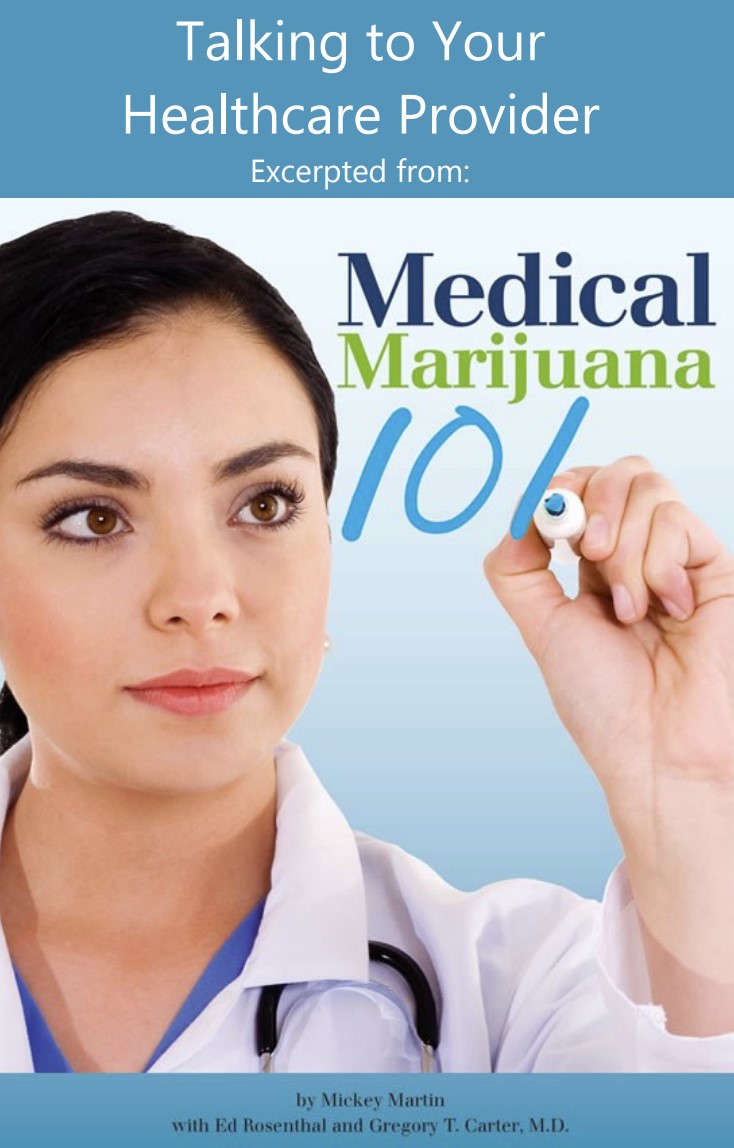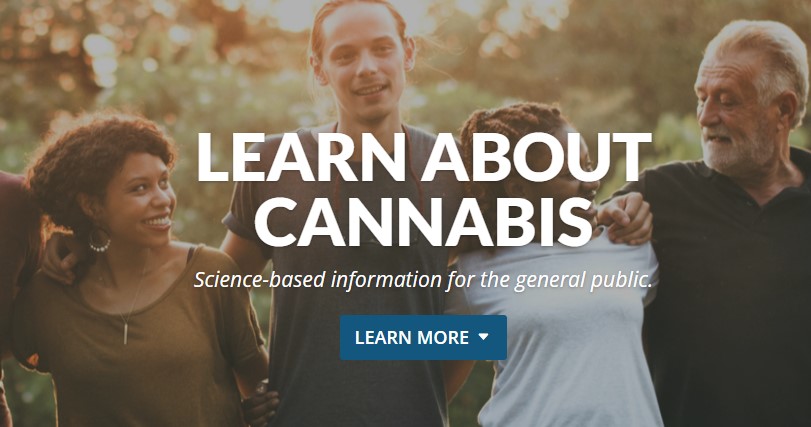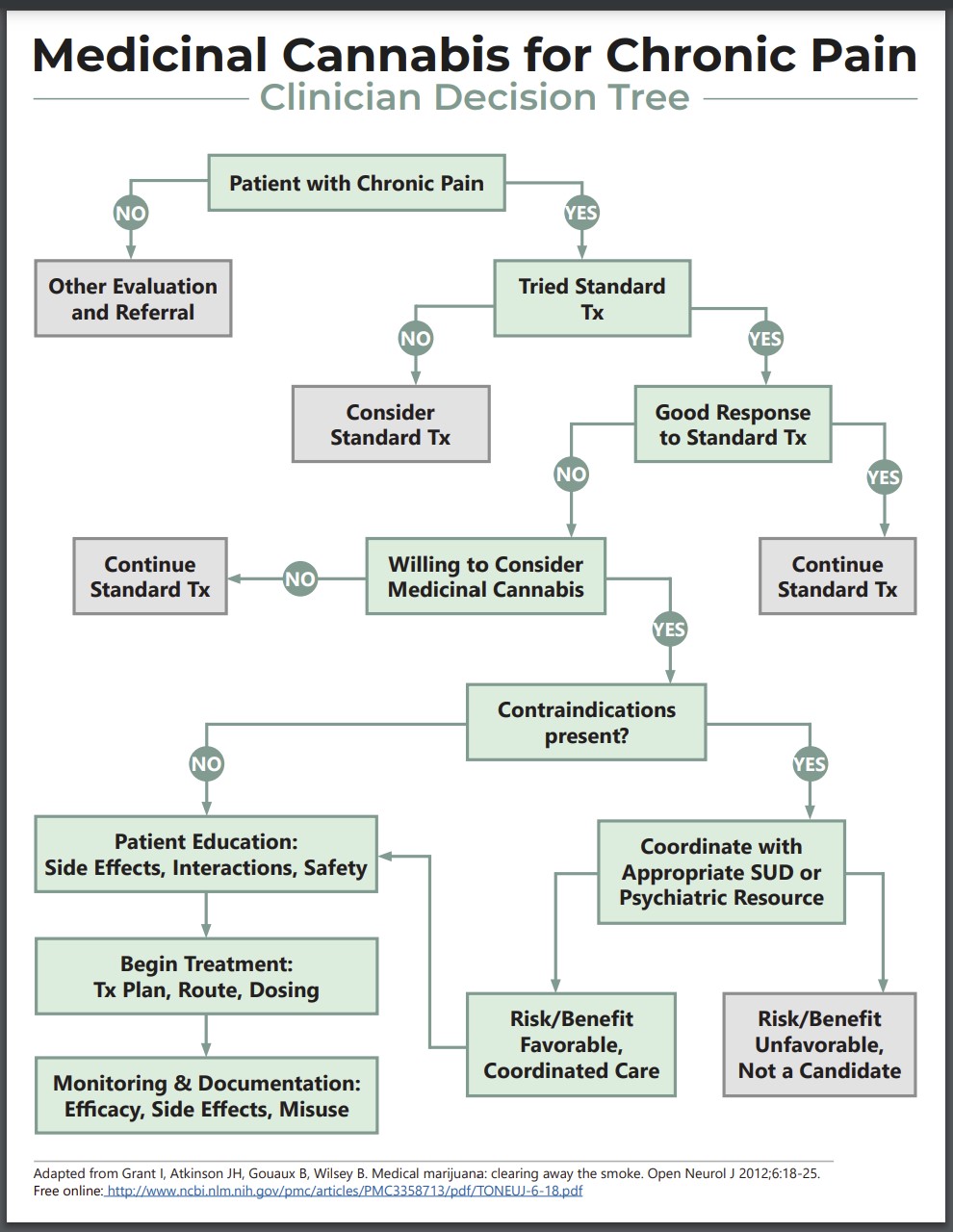Provider Toolkit
Home | Toolkit | Acknowledgements
Developed as part of the online training “Medicinal Cannabis and Chronic Pain” for health professionals, this toolkit contains a variety of resources and tools to assist providers with decision-making and patient care related to the use of medicinal cannabis for the treatment of various conditions, with a focus on chronic pain. These resources may be downloaded and used freely, with attribution as noted on each document, but may not be altered in any way or used commercially.
Clinical Tools
Clinical Decision Tree – Discussed in Module 2, this tree can be used to determine whether medicinal cannabis is appropriate for your patient and assist in the development of a treatment plan. Adapted from Grant et al, 2012.
Patient Dosing Journal – Journal for patients to use when beginning treatment to record dose, frequency of use, pain levels, and functionality. From Healthy Whole Solutions.
Patient Treatment Agreement – A sample agreement, modified from an opioid treatment agreement, for use when establishing a treatment plan and guidelines with your patient.
Washington State Department of Health Medical Marijuana Authorization Practice Guidelines – The Board of Naturopathy, the Medical Quality Assurance Commission, the Nursing Care Quality Assurance Commission, and the Board of Osteopathic Medicine and Surgery worked together to adopt shared professional practice standards expected of all healthcare practitioners who authorize medical cannabis under Washington State law.
Authorization Form – Documentation of health care professional’s authorization to engage in the medical use of cannabis in Washington State (as required by RCW 69.51A.010(5). Must be printed on tamper-resistant paper. Instructions for completing the Medical Marijuana Authorization Form.
Screening Tools
UW Pain Tracker – This tool can be used to track improvements in pain-related symptoms over the treatment period.
Alcohol, Smoking, and Substance Involvement Screening Test (ASSIST) – This 8-item tool, developed by the World Health Organization (WHO), screens patients for substance use and related problems.
Marijuana Problem Scale – This 19-item assessment helps the patient identify areas in his or her life negatively affected by cannabis use, including social relationships, self-esteem, work/finances, motivation, physical health, memory, and legal problems.
Patient Education

Talking to Your Health Care Provider – Excerpts from the book Medical Marijuana 101 by Mickey Martin, Ed Rosenthal, and Gregory T. Carter, M.D., with an emphasis on information patients can bring to their providers when interested in talking about medicinal cannabis use.
Medicinal Cannabis and Chronic Pain: Information for Patients – Developed as part of this project, this brochure is intended to educate patients considering the use of medicinal cannabis about risks, routes of administration, and safe use.
Medical Marijuana: Information for Patients and Consumers – From the Department of Health, information on regulations and procedures related to becoming a medical cannabis patient in Washington.
Washington State Department of Health brochures:
- A Patient’s Guide to the Medical Marijuana Database
- A Patient’s Guide to the New Medical Marijuana Consultant
- A Patient’s Guide to Forming a Cooperative
Other Resources
References for Module 1 | References for Module 2

Learn About Cannabis– This web site, developed by the Addictions, Drug & Alcohol Institute at the University of Washington provides science-based information about cannabis for the public. Find factsheets, information for adult consumers, and pages with resources specifically for parents and teens.
Americans for Safe Access – ASA is a non-profit organization dedicated to ensuring safe and legal access to cannabis for therapeutic uses and research. The website includes sections with resources for patients and providers.
Patients Out of Time – This non-profit organization focuses on the education of both health care providers and the general public about medicinal cannabis.

